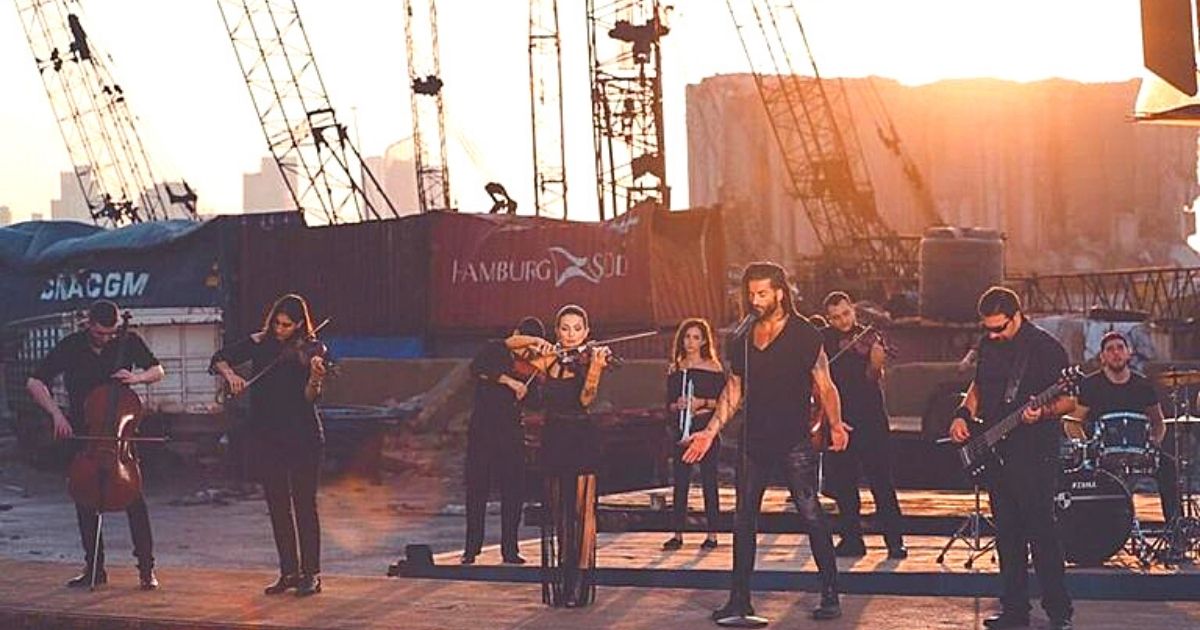One more time, the artistic community fails at drawing a line between the theater and the crime scene. It seems that production companies are competing for the biggest achievement and singers for the most dramatic video.
The first common thing among them all is that they are all performing under the slogan “A Gift for the Victims of Beirut Blast.”
After the performance of Fawj Etfaa Beirut by the Lebanese singer Amir Yazbek at the Beirut Port crime scene, a similar scenario repeats itself.
Titled Ana Beirut (I am Beirut), the song was performed by the singer Fadee Andrawos at the site of Beirut Port Blast as “a tribute” music video to the victims.
The music video shows Andrawos rocking out with a band on a stage at the port with, as background, the destroyed silo. Considering how highly insensitive and inappropriate it is, Lebanese on social media are lashing out at him, his performance, and his song.
Beirut Port is the scene of a horrific crime that killed over 234 innocent people, injured thousands, maimed as many, and caused the country to sink further in crises.
It is the scene of a crime that is still waiting for the government to look after it. Instead, the government is giving permission for artistic events to take place at this scene.
All of this is with the approval of the authority and under the eyes of the security services that are supposed to protect the port and the crime scene that is still under investigation.
Here are some examples of how people are reacting to the theatrical performance.
“Which animal came with the idea to plant a stage in the Beirut port and making songs and others happen?” tweeted a Lebanese by the name Michel Tannous.
“The families of the victims are not waiting for songs that remind them of their losses, nor do they expect a politician to stand by them, nor are they coming to see the creativity that some have,” tweeted George Jbeily. “They went down to pray for the souls of their loved ones in the hope that justice will be served one day.”
At the fierce reactions, and some accusing him of dancing on corpses, the grad singer Andrawos posted an explanatory video and shared with “Al-Ain News” the message behind his song.
“Some believed that the video clip was filmed at the scene of the explosion, considering that it danced on the bodies of the victims and body parts, so I published a video clip in which I explained that the filming took place in a position to load and unload the goods, which is a public place where everyone is filmed,” he said.
“It was the location of the explosion or a place where investigations were taking place, of course, no permission would be given to filming,” he added in an attempt of justification.
He added that his explanatory video was to respect the feelings of those who lost their loved ones because of the explosion.
The fact remains that the timing and the setting were inappropriate and insensitive, as was the government granting permission for theatrical songs to be performed at the port.
The Lebanese nation is still deeply grieving, dealing with intense emotions of the trauma, and has not had closure to date.
Families of the victims are still mourning their loved ones and aching for justice with excruciating pain and anger. Protests and marches have filled the streets of Beirut on August 4th, marking the 1st anniversary of that horrific mass murder.
